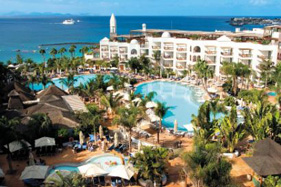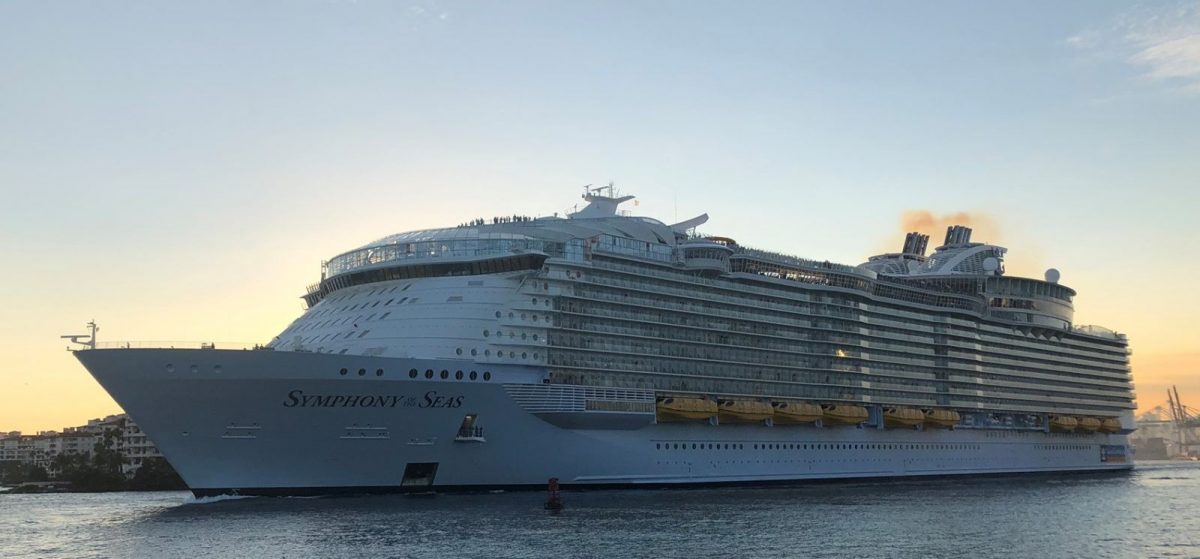Lanzarote faces losing its eco status

The Princess Yaiza complex
Eight hotels qualified for 24m Euros EU aid: now 30 local officials arrested and destination could lose green classifications because of illegal coastal overdevelopment
Eight large hotels on the island – some of which use the island’s UNESCO biosphere status to promote their businesses – qualified for €23.6m of EU funding under schemes designed to help generate employment in the area.
More than 30 local officials and businessmen in Lanzarote have been arrested in connection with the use of illegal planning permits and the EU’s anti-corruption team has been charged with ensuring that the EU subsidies are returned.
The Financial Times and the London-based Bureau of Investigative Journalism last week raised the issue of how EU funds were used to fuel a building boom on land earmarked as environmentally sensitive.
Lanzarote’s governing council and a regional court has found as many as 24 hotels, including seven that received EU funding, were in breach of local planning laws designed to protect the fragile landscape.
Natarajan Ishwaran of UNESCO told Vision on Sustainable Tourism: “In biosphere reserves the most important challenge to management is the maintenance of mutually beneficial relationship between conservation and socio-economic wellbeing of the local communities."
"Research, stakeholder consultations, training, awareness raising and other interventions are all directed to nurturing this hypothetically desirable "win-win" situation. But in practice problems, concerns, queries via third party investigations such as that has been raised by the FT investigation are all common and we have to address them in systematic manner giving all parties concerned to express their views. This naturally takes time and tends to test the patience of the journalistic world; but then our intergovernmental world of work is different and we have to verify such reports with the concerned national authorities before making any remarks and taking any action.”
Although the island’s government is obliged to inform Unesco of any changes in circumstance that may affect its biosphere status, the organisation was unaware of the illegally built hotels until last week. Said Mr Ishwaran "We are keen to know what measures the Spanish are undertaking to rectify the matter."
The Princess Yaiza hotel was one of the leading recipients of EU funding, receiving more than €4m seven other hotels were partly financed by European Union development funds. In total, €23.6m in EU funds has gone directly into the hotels in question on Lanzarote, eligible for a range of European and national subsidies and tax breaks.
Like many other hotels on the island, local courts have declared the Princess Yaiza an illegal structure. In total, 24 hotels in Lanzarote have been the subject of cases brought by the island’s governing council and other interested parties. Twenty-two, including the Princesa Yaiza, have had their initial building licences retroactively annulled by the Canary Islands High Court, although the Princesa Yaiza says it still retains other operating licences.
The hotel denies any wrongdoing and claims it has been caught up in a local political dispute. “It’s not my responsibility if local authorities gave the licence and now want to take it away. This is a political topic, which the politicians intend to resolve shortly,” said Javier Suárez, director of Princesa Yaiza Hotel told the FT.
Lanzarote has among the highest unemployment levels in Spain, at 31.5 per cent compared with a national average of 20 per cent.
Conservationists argue the money would have been better used on economic diversification, green energy projects, or improved educational and training facilities. They also say that the the tourism industry has crowded out agriculture and fishing from the local economy and undermined the sustainability of an island that imports everything and relies on desalination plants for virtually all its water.
“At first we were surprised when EU funds started finding their way into tourism development,” Pilar Marcos of Greenpeace’s coastal protection programme in Spain told the FT. “Then we thought, ‘brilliant, another layer of control on environmental and buildings standards’. In the end, however, the money’s just been caught up in the whole development orgy that has destroyed our coasts.”
The Princesa Yaiza has not been involved in any corruption investigations. But in Lanzarote alone, more than 30 public officials and businessmen have been arrested amid investigations into bribes for building and operating permits and similar offences. At one stage, six of the seven island mayors were caught up in police inquiries.
The European Anti-Fraud Office opened a file on Lanzarote and is now charged with ensuring the recovery of any EU money used to finance illegal construction of the hotels. Seven of the eight hotels that received EU funds have been declared illegal by local courts. Officials in Brussels told the FT that the EU has so far managed to recuperate €19m of the €22.5m disbursed to those seven hotels by withholding other funds due to Spain as part of the current funding round.
There has been some dispute about who is ultimately repaying the EU. While Spanish authorities are adamant that not one euro has gone to any of the hotels, some hotel owners caught up in the dispute claim that they received the funding and have never been asked to pay it back, raising questions about the efficiency of financial control systems in Spain.
The Lanzarote blueprint envisaged low-density, five-star hotel and residential tourism in selected zones. Backed by Spain’s “Coastal Law” and countless municipal bylaws, the PIOT gained world recognition as a safeguard against the island’s ecosystem. Unesco awarded it Biosphere status in 1993, reinforcing perceptions of a protected environment.
Island ecologists say the sudden wealth created by tourism and construction overpowered the islanders’ original determination to avoid overdevelopment.
These cases could jeopardise Lanzarote’s UNESCO biosphere status, which has helped the island win special grants and funding. Meriem Bouamrane of Unesco told the FT: “Lanzarote had a very good application. Mass tourism was not something they were developing. They promoted sustainable tourism that was more respectful to the environment.”
“We are in touch with the Spanish authorities about the situation. If the developments are not respecting local needs and are impacting on the environment, the title can be revoked.”
Although there are 564 declared biosphere sites in 109 countries – including 40 in Spain – Lanzarote is one of the few whole islands (like La Palma and Fuerteventura) to enjoy this status.
Valere Tjolle
Source FT.com and UNESCO
 United Kingdom
United Kingdom United States
United States Asia Pacific
Asia Pacific












































CLIA expands trade support with expedition event
Qatar Airways adding Manchester flights
Jet2 unveils Samos as new Greek destination for summer 2026
EU entry-exit system delayed again
ATC strike in Greece could disrupt flights this week